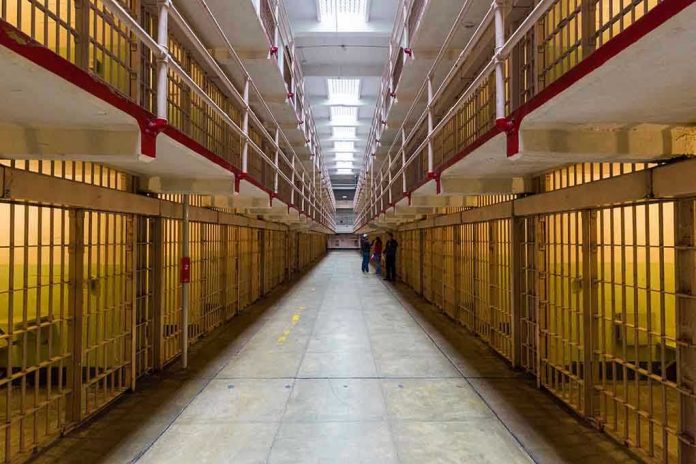
In a landmark decision, the Third Circuit Court has struck down New Jersey’s attempt to ban private immigration detention facilities, emphasizing that states cannot regulate federal operations.
At a Glance
- The Third Circuit Court ruled against New Jersey’s law prohibiting private immigration detention.
- Judge Stephanos Bibas emphasized the doctrine of federal supremacy and intergovernmental immunity.
- The decision allows private detention facilities to continue operations in New Jersey.
- This ruling reinforces federal control over immigration enforcement, limiting state interference.
Federal Supremacy Reaffirmed
The recent decision by the Third Circuit Court, authored by Judge Stephanos Bibas, is a pivotal reaffirmation of federal supremacy over state interference. At the heart of the matter is New Jersey’s 2021 law, AB 5207, which aimed to prohibit private entities, including CoreCivic, from engaging in civil immigration detention within the state. This law was part of a broader movement by certain states to limit or eliminate private immigration detention facilities. However, the court found this to be an infringement on federal operations, citing the constitutional principle of intergovernmental immunity.
The principle that state and federal governments are sovereign within their respective domains is foundational to the U.S. constitutional system, established by the Constitution’s Supremacy Clause. Judge Bibas noted that just as the federal government cannot control a state, similarly, a state cannot control the federal government. This ruling, therefore, underscores the balance of power between state and federal authorities, particularly in immigration detention policy.
Implications of the Ruling
This decision has immediate and far-reaching implications. In the short term, it allows private immigration detention facilities in New Jersey to continue operating under federal contracts, despite state opposition. CoreCivic, the private company operating New Jersey’s only private immigration detention facility, can maintain its federal contracts and business operations. For the federal government, this ruling preserves its operational flexibility in immigration enforcement and reinforces the supremacy principle, limiting states’ abilities to obstruct federal operations through indirect regulation.
In the long term, this decision may discourage other states from enacting similar laws aiming to regulate federal immigration enforcement. The ruling emboldens private prison operators and federal agencies to challenge state restrictions elsewhere. It also intensifies the ongoing debates over state versus federal authority, immigration policy, and the role of private prisons. While supporters of this decision emphasize constitutional fidelity and operational efficiency, critics argue it enables federal circumvention of state policy preferences.
Stakeholder Reactions
The ruling has sparked varied reactions from different stakeholders. CoreCivic and other private prison companies welcome the decision as it secures their business interests in federal contracts. The federal government sees it as a victory for maintaining authority and operational efficiency in immigration enforcement. Conversely, New Jersey and immigrant rights groups have expressed disappointment, arguing that the decision undermines state autonomy and accountability in immigration policy. They may seek further review, although the ruling currently stands.
Legal scholars note that the decision is consistent with longstanding Supreme Court precedent on federal supremacy and intergovernmental immunity. Judge Bibas’s opinion is seen as a clear reaffirmation of dual sovereignty and the limits of state power over federal operations. The dissenting opinion, however, argues that the law did not directly regulate the federal government and should be upheld. This split in interpretation highlights the ongoing tension between state policy autonomy and federal supremacy.
Broader Impact on State-Federal Relations
Beyond immigration, this decision sets a precedent for future state-federal disputes. It reinforces the notion that states cannot indirectly regulate federal operations by targeting private contractors engaged in federal work. The economic implications are significant, preserving revenue and jobs associated with private detention facilities. Socially and politically, the ruling may fuel further debates over the balance of power in the United States, with implications for other contentious issues like healthcare, environmental regulations, and gun rights.
As the nation navigates these complex issues, this decision serves as a reminder of the enduring principles enshrined in the U.S. Constitution. Federal supremacy, as reaffirmed by the Third Circuit Court, remains a cornerstone of American governance, even amid evolving state-federal dynamics.



